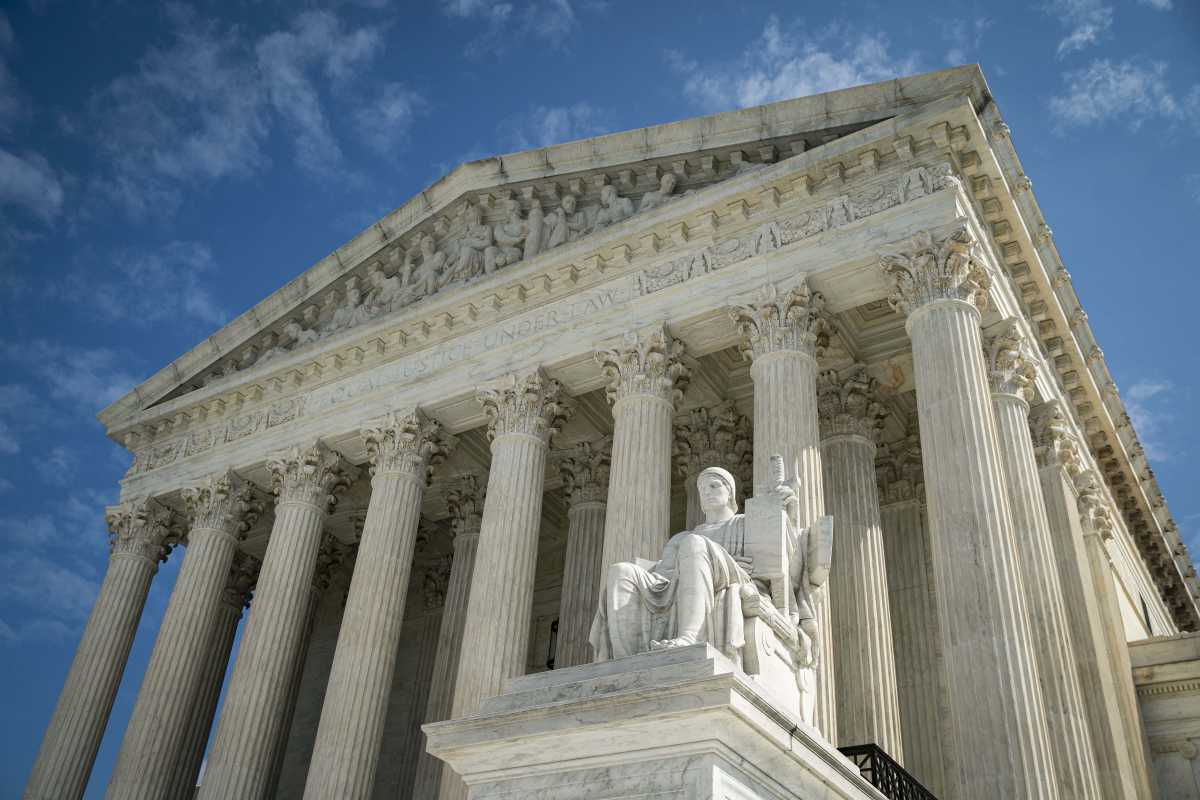Mitch McConnell warns CEOs to ‘stay out of politics’ amid Georgia row, Internet jokes 'unless they give money'

With the controversy over the new voting law in Georgia snowballing, top Senate Republican leader Mitch McConnell has broken his silence on the matter. Major corporate bodies based out of Georgia and Major League Baseball have recently protested against the new law that critics have alleged to be too restrictive. And the veteran lawmaker from Kentucky has warned big businesses to “stay out of politics” besides slamming President Joe Biden who has said the Peach State bill marked a return to the Jim Crow-era restrictions as it was seen once in the southern states.
Speaking at a press conference in his home state on Monday, April 5, McConnell, 79, said: “I found it completely discouraging to find a bunch of corporate CEOs getting in the middle of politics. My advice to the corporate CEOs of America is to stay out of politics. Don’t pick sides in these big fights.” The Senate minority leader also cautioned the corporations against surrendering before any advocacy campaign.
“It’s jaw-dropping to see powerful American institutions not just permit themselves to be bullied, but join in the bullying themselves,” he added.
RELATED ARTICLES
Georgia Voting Law: Ilhan Omar disagrees with Stacey Abrams, says 'boycotts ended apartheid in South Africa'
“The president has claimed repeatedly that state-level debates over voting procedures are worse than Jim Crow or ‘Jim Crow on steroids.’ Nobody actually believes this,” McConnell said. “Nobody really thinks this current dispute comes anywhere near the horrific racist brutality of segregation.”

Last week, big Georgia-based firms like Coca-Cola, Delta Air Lines and others condemned the new election law in the state while MLB shifted its All-Star Game from Atlanta in protest. Texas Governor Greg Abbott retaliated to the MLB decision by refusing to take part in the first pitch for Texas Rangers in his state on Monday.
McConnell accuses big businesses of 'frantic left-wing signaling'
McConnell also issued a written statement saying Georgia’s new law has been projected unfairly and alleged it as “a coordinated campaign by powerful and wealthy people to mislead and bully the American people”. He said the people of America do not require big businesses “to amplify disinformation or react to every manufactured controversy with frantic leftwing signaling”.
“From election law to environmentalism to radical social agendas to the second amendment, parts of the private sector keep dabbling in behaving like a woke parallel government. Corporations will invite serious consequences if they become a vehicle for far-left mobs to hijack our country from outside the constitutional order,” he added.
According to a report by The Guardian: “He (McConnell) did not elaborate on the warning, but the comments imply a significant rupture after decades in which big business tended to favour Republicans and give them the lion’s share of campaign contributions, enjoying the benefits of low taxes and limited government regulation.”
McConnell slammed on social media for his remarks
The senior lawmaker also faced flak over his remarks against the corporate houses. Political commentator Jennifer Rubin said in a tweet: “Senate Minority Leader Mitch McConnell (R-Ky.) is second to none in protecting First Amendment rights of corporations — at least when the subject is money. Now he and Rs are retaliating for exercising those rights”
Senate Minority Leader Mitch McConnell (R-Ky.) is second to none in protecting First Amendment rights of corporations — at least when the subject is money. Now he and Rs are retaliating for exercising those rightshttps://t.co/khgqR6PRoP
— Jennifer 'pro-voting' Rubin (@JRubinBlogger) April 5, 2021
Mark Joseph Stern, who is a staff writer with progressive online magazine Slate, recalled McConnell’s past tryst with corporate bodies. In a tweet, he said: “I’m sure someone has already made this point. But the landmark 2003 Supreme Court case McConnell v. FEC had that name because Mitch McConnell himself filed a lawsuit against federal laws that limited corporations’ ability to spend money influencing elections.”
I’m sure someone has already made this point. But the landmark 2003 Supreme Court case McConnell v. FEC had that name because Mitch McConnell himself filed a lawsuit against federal laws that limited corporations’ ability to spend money influencing elections. https://t.co/YCMozabjmx
— Mark Joseph Stern (@mjs_DC) April 6, 2021
Democratic Oregon Senator Jeff Merkley tweeted: “Mitch McConnell and his minions constantly divide and demonize and try to distract us with tired culture wars so they can keep looting America, sacrificing our shared future, and hold on to power.” Fred Wellman, executive director of The Lincoln Project, said in a tweet: “Shorter Mitch McConnell to corporations: Give us your money and shut up.”
Mitch McConnell and his minions constantly divide and demonize and try to distract us with tired culture wars so they can keep looting America, sacrificing our shared future, and hold on to power.
— Senator Jeff Merkley (@SenJeffMerkley) April 5, 2021
Shorter Mitch McConnell to corporations: Give us your money and shut up. https://t.co/oUMMawCCnZ
— Fred Wellman (@FPWellman) April 5, 2021
The Republicans witnessed two back-to-back blows in Georgia, one of their bastions in the recent elections. While Biden became the first Democrat to win the state in a presidential election since 1992, the GOP lost its advantage in the Senate by losing the two run-off elections in the state in January.
McConnell backed 2010 Citizens United v. Federal Election Commission verdict
McConnell’s warning to the corporate bodies brings into focus the landmark verdict that the Supreme Court gave in the Citizens United v. Federal Election Commission case of 2010, something which he backed even if it is non-consistent with his current stance. The ruling reversed age-old campaign finance restrictions and allowed corporations and other groups to spend unlimited money on elections, something McConnell has opposed now. After the SCOTUS ruling came, the contribution of wealthy donors and corporations increased by a big margin and according to many, left a negative impact on the US democracy and the fight against political corruption, the liberal Brennan Center for Justice said.

Citizens United, a conservative nonprofit group, challenged the campaign finance rules after the FEC barred it from promoting and airing a film slamming former presidential candidate Hillary Clinton too close to the presidential primaries. The SCOTUS ruled 5-4 in favor with Citizens United, saying corporates and other outside groups can spend unlimited funds on polls. The top court felt that limiting “independent political spending” from corporations and other groups violates the First Amendment right to free speech. Those judges who voted in favor of Citizens United felt independent spending cannot be corrupt and on the contrary, would be transparent. The ruling reversed restrictions on spending that were in place for more than 100 years.
McConnell was slammed for his apparent contradiction of stance. Lawyer Ted Boutros tweeted: "The entire premise of the Supreme Court’s decision in Citizens United, which Sen. McConnell backed and backs wholeheartedly, is that corporations have full-throated First Amendment rights in politics." Matt Stoller of American Economic Liberties Project said on Twitter: "Conservatives are turning against Citizens United and the McConnell legacy of corporatism. This is very good news."
The entire premise of the Supreme Court’s decision in Citizens United, which Sen. McConnell backed and backs wholeheartedly, is that corporations have full-throated First Amendment rights in politics. https://t.co/U23NhCSYdZ
— Ted Boutrous (@BoutrousTed) April 6, 2021
Conservatives are turning against Citizens United and the McConnell legacy of corporatism. This is very good news. https://t.co/TAbjz5yCCA
— Matt Stoller (@matthewstoller) April 5, 2021
Political analyst Bill Scher said: "When McConnell celebrated "Citizens United," he said, "For too long, some in this country have been deprived of full participation in the political process ... the Constitution protects their right to express themselves about political candidates and issues up until Election Day".
When McConnell celebrated "Citizens United," he said, "For too long, some in this country have been deprived of full participation in the political process ... the Constitution protects their right to express themselves about political candidates and issues up until Election Day" https://t.co/obQRVJdozu
— Bill Scher (@billscher) April 6, 2021
The liberal Brennan Center for Justice slammed the ruling in a piece in December 2019. It said: “In its decision, the Supreme Court reasoned that unlimited spending by wealthy donors and corporations would not distort the political process, because the public would be able to see who was paying for ads and “give proper weight to different speakers and messages.” But in reality, the voters often cannot know who is actually behind campaign spending.”
2003 McConnell v Federal Election Commission case verdict
As Stern said above, McConnell had a different stance on a similar issue nearly two decades ago. He was opposed to the Bipartisan Campaign Reform Act (2002) or BCRA or McCain-Feingold Act which sought regulation of campaign finances and led a number of Senate filibusters to block its passage. Along with bodies like the National Rifle Association, McConnell felt the BCRA unconstitutionally infringed on the First Amendment rights. But in its ruling in the McConnell v Federal Election Commission case of 2003, the SCOTUS upheld the two principal features of the BCRA, namely, the control of soft money and regulation of electioneering communications.










